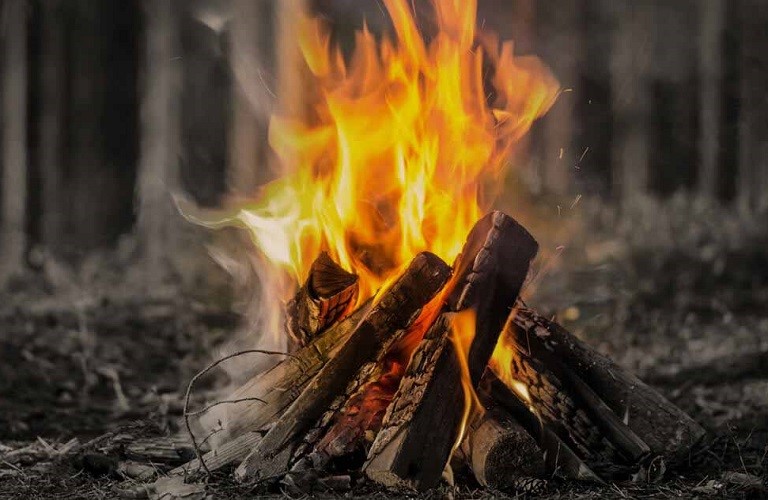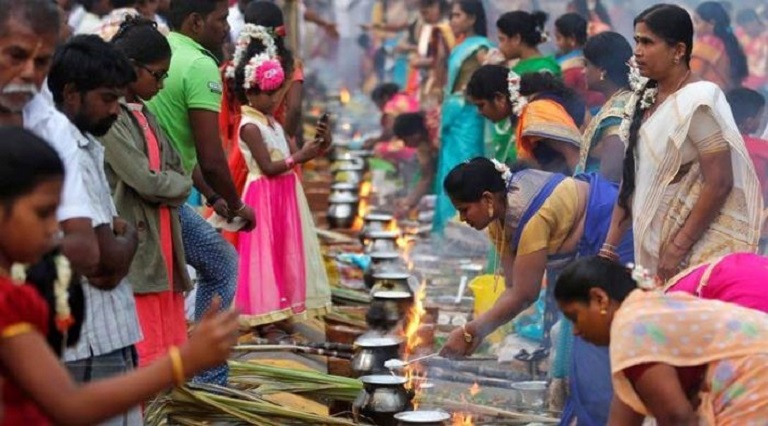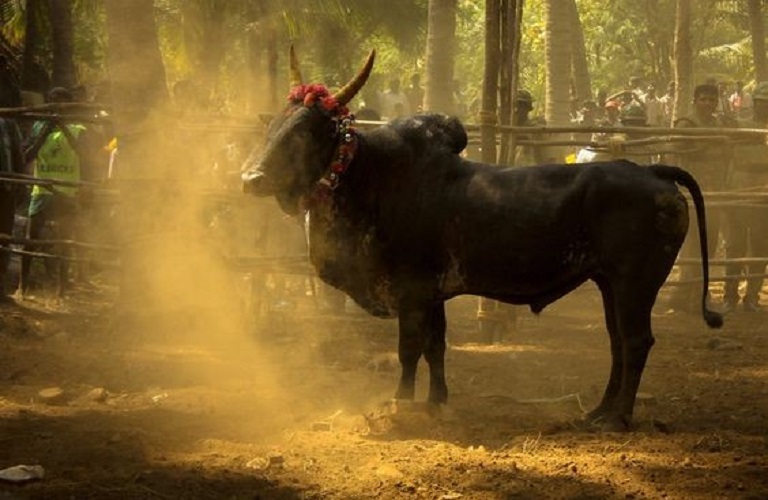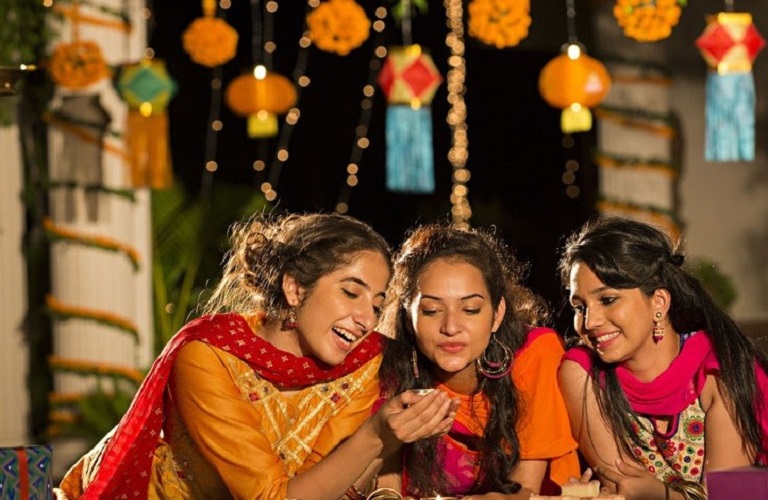The harvesting festivals in India falls in the middle of January, which marks the beginning of the Sun's journey northward. This festival is celebrated as Makar Sankranti, Lohri and Bihu in the different parts of India and in Tamil Nadu, it is known as Ponggal.
The celebration of Ponggal goes a long way back, where it was even mentioned in the Sanskrit puranas during the Sangam age.

During the Pallavas' reign (4th to 8th Century AD), 'Pavai Nonbu' was observed during Thai Niradal in the month of Marghazhi. During this celebration, the ladies pray to Goddess Katyayani in the hopes that their land will be blessed with rain and abundance and complete their penance on the first day of Thai month. This tradition has led to the Ponggal celebration.
Day 1: Bhogi Ponggal

Bhogi is celebrated on the last day of Margazhi. During this day, the house is cleaned and decorated. It is a custom to burn unused old items in a bonfire during Bhogi.
This celebration signifies removing unwanted things from your life and making a fresh start. Lord Indran (God of Heaven) is prayed on this day to get a plentiful harvest.
Day 2: Thai / Surya Ponggal

This marks the first day of the Thai month. On this day, the Surya Bagavan (God of Sun) is worshipped as no life can thrive on earth without the sun.
It is a custom to cook ponggal (rice cooked with milk and jaggery) in a clay pot, which is done in an open area facing the sun. When the ponggal boil and spills, everyone gathers around and say 'ponggalo ponggal' with joy before offering the dish to the deity during prayers.
Day 3: Maattu Ponggal

The third day is dedicated to cows, bulls, and oxen which contributes greatly in agriculture and farming.
On this day, their horns are decorated, meanwhile, flower garlands and bells are tied around their necks. Ponggal is offered to the animals to show our gratitude for their immense contribution.
In some parts of India, Jallikattu (bull taming sport) is held on this day even though the sport is opposed by animal activists.
Day 4: Kaanum Ponggal

It's the final day of Ponggal celebration. 'Kaanum' in Tamil means to see or view; it's the time everyone gathers with their family members and friends to have a good time.
Source: Pongal Festival, TSCBS, Parent Circle and Know Your Origin
Image credit: Pinterest, Vikatan, News Bugz, Tour My India and Klimom







